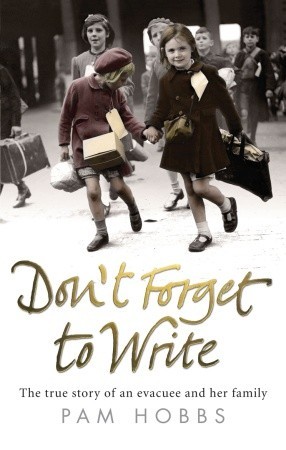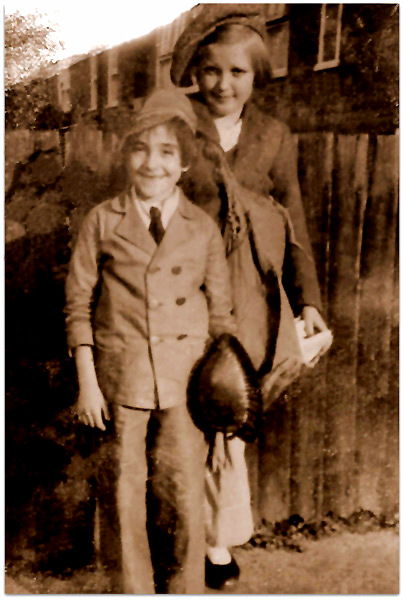|
Home - The Village Today - History - Maps - Memories - Newspapers - Picture Gallery - World Wars |
|
Home - The Village Today - History - Maps - Memories - Newspapers - Picture Gallery - World Wars |
Evacuees  Click Here To Visit Amazon Mabel’s husband’s family built Woodlands on Mapperley Lane and they had an evacuee stay with them in 1940/41 'Don't Forget to Write' by Pam Hobbs ISBN 9780091932503 I found the book fascinating. Sad in places, humourous, educational and above all a really good read. In her book, Pam writes about staying at a lodge in Charbury and having read of her time there and the descriptions of the area and of some villagers I started to think that this sounded a lot like Mapperley. Mabel also thought this to be the case. I researched Pam and found contact details for her so emailed (with fingers crossed).
For more about Pam you can check her website www.firsttravelbug.com/ or google her at Pam Hobbs, author.
I was absolutely delighted when Pam wrote the following for my website.
OPERATION PIED PIPER BROUGHT WW ll EVACUEES TO MAPPERLEY from Pam Hobbs
They called it Operation Pied Piper, the evacuation of children - school aged and younger - from Britain's industrial areas to the safety of less populated regions. The first wave, numbering over a million, left London at the start of war in September 1939. Ten months later, with invasion threats from nearby enemy-occupied France, children from England's southern coast were assembled at their schools and sent by rail to undisclosed destinations. Many ended up in Derbyshire. I was l0 at the time, my sister 12, and we were among them. The letter sent home from school was specific: every child was to bring clothes in a single bag, a gas mask, a label pinned to outer clothing giving name and home address, and a stamped postcard addressed to our parents. This would be posted upon arrival, telling them where we were. Mine informed our family that we were billeted with Aunty Ciss and Uncle Joe, in Mapperley. It was two years before I saw my parents again. My sister went home after about 14 months. SATURDAYS. I loved them. We had the choice of going into Ilkeston on a double-decker bus, or evacuees could join a teacher (who was a fellow evacuee) on hikes and rambles with a picnic lunch. She was the one person we could confide in, complain to, ask about news of bombing back home. But still, Ilkeston with Aunty Ciss was a real treat, especially in winter. To be among crowds at the market, busy shops, bright lights and a stop for tea in a cafe, was something we looked forward to all week. SUNDAYS. Not so much. We had to attend church three times on Sundays, and weren't allowed to play. SCHOOL. I have to say that although I liked to learn, the village school was probably the only place where I was afraid. The teacher, Mr Johnson, brandished a cane at whim, and although I never felt it, his threats had me constantly on edge. And yet this man took time to coach me privately, for a scholarship which opened doors to a life I could never have dreamed of then. For this I am ever grateful.
 Pam and fellow evacuee Sheila Overton in fancy dress.
Mapperley, Summer 1941
After the war I wrote regularly to Aunty Ciss and Uncle Joe, and although they never replied I felt sure they were pleased to hear from me. Then, one day a letter was returned unopened, stamped simply with the word "Deceased". I was saddened beyond words because I hadn't visited them before emigrating from England. In the l980s I had the opportunity to return to Mapperley. I searched the churchyard for Cissy and Joe's graves, with no success. A teacher and several boys came by with chairs from the school. I told them of my mission, and was invited to the school but knew it wouldn't be a comfortable visit for me. Instead I went into the village shop where I met a Mrs East who recalled the evacuees, though not me in particular. We went back to her home across from the school. She made us tea, and brought out family photos which showed her two sons who I remember well. From there I walked back to the 'new' church, and sat for a bit, smiling about the time Cissy implored the vicar to let me join the choir even though I couldn't sing two notes in tune. Eventually he agreed, on condition that I mouthed the hymns, but kept my voice to myself.
Operation Pied Piper was not an overwhelming success. Many unhappy children returned home within days or weeks. Many were mistreated. Many who loved the whole experience, didn't want to go home at war's end. Some, whose homes had been bombed and parents killed, were able to stay. Others returned as soon as they were old enough, to build productive lives in the countryside they had learned to love as evacuees.
I thank Pam so much for her wonderful words. It is really good to hear that Mr ‘Gaffer’ Johnson had such a positive influence on Pam’s life as we have only ever heard the bad side of him. There is a wonderful article in the Daily Mail in 2009 as her book was launched which included some great photographs too
Disclaimer - Copyright - Is this page correct? Something wrong or missing? Please let me know. Also contributions very welcome |